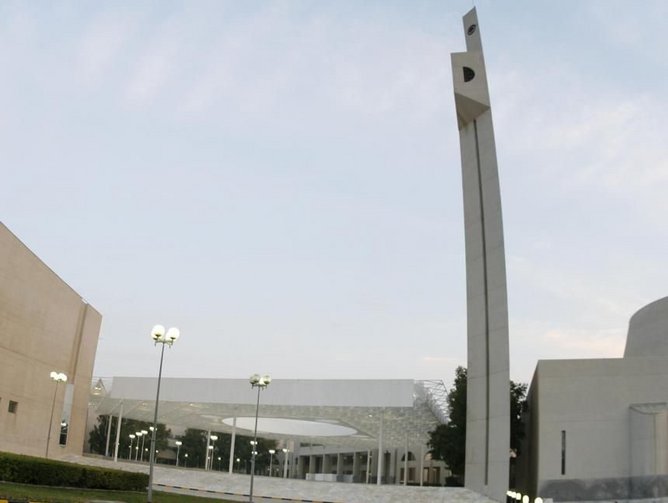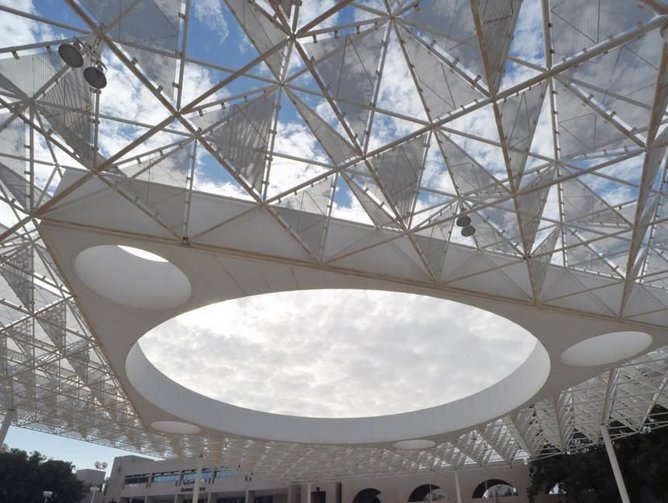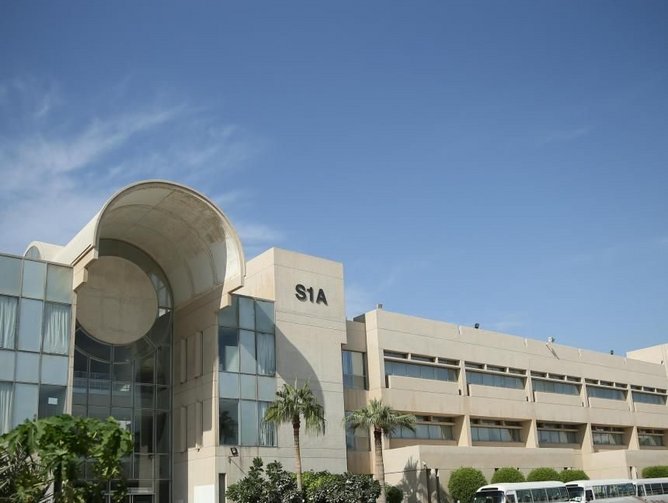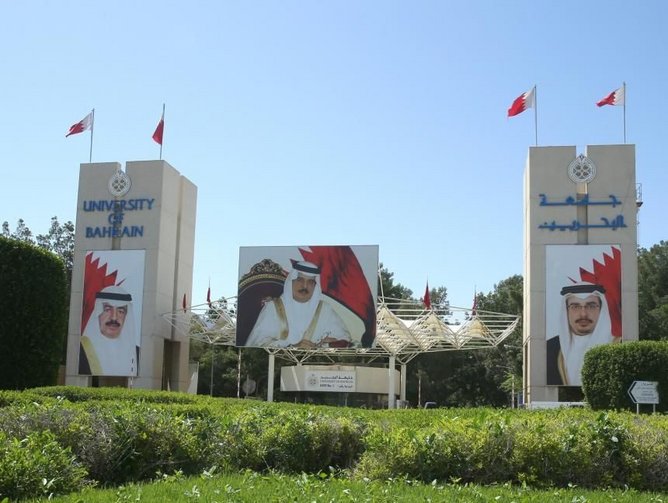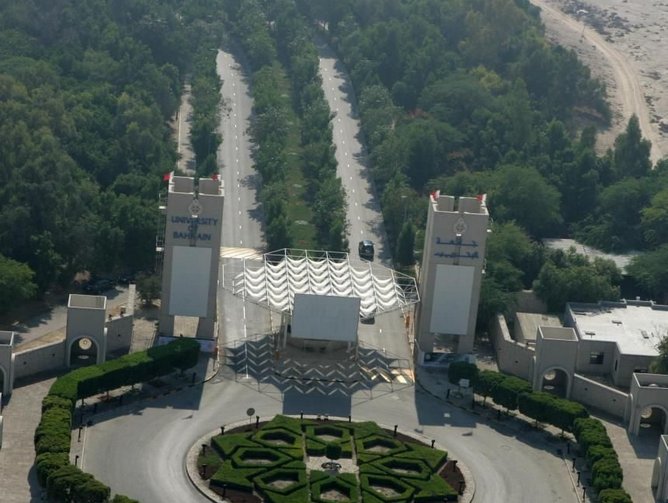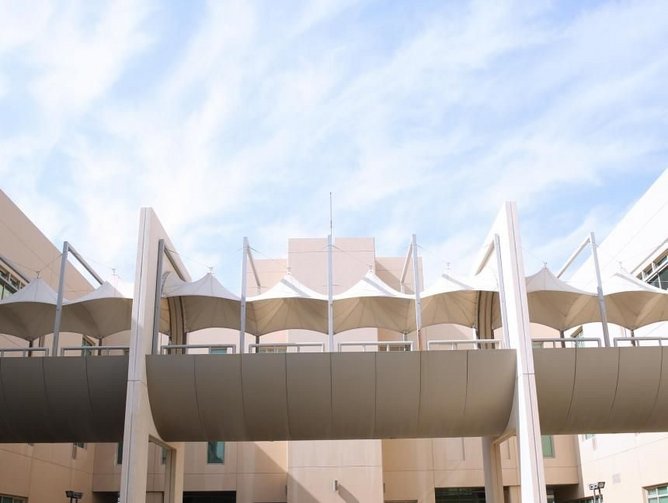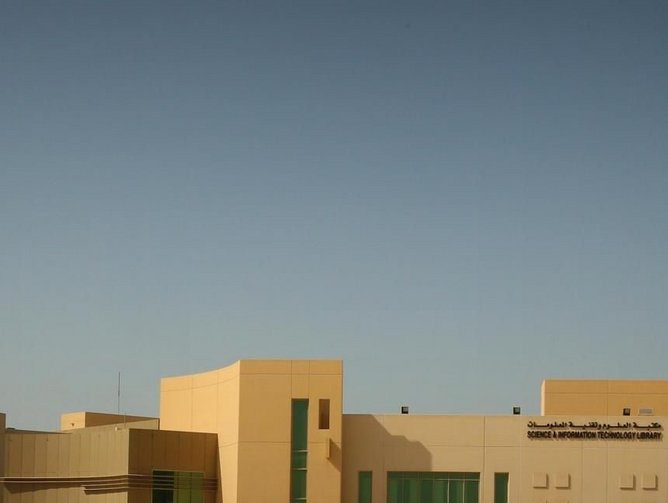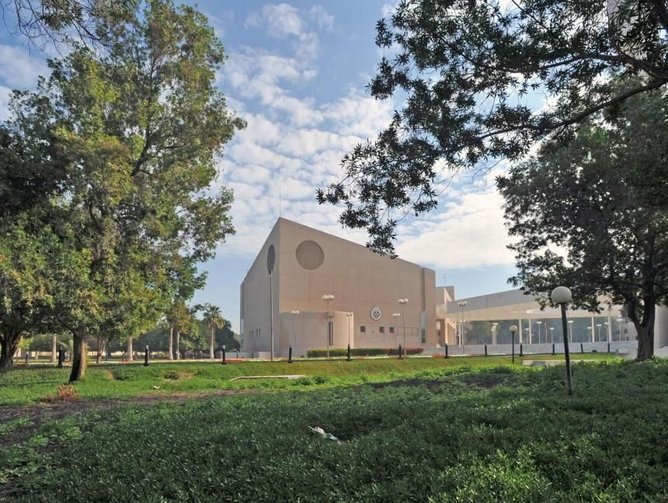How the University of Bahrain is technologically tailoring its campus
The University of Bahrain is injecting technology into its campus, not only to keep up but to lead the way. A regional pioneer on the tech front, the campus focusses on tailoring itself to students’ lifestyles and keeping its position as one of the greenest campuses in the world. The ultimate outcome is effective efficiency and skills development, both for students, academics, and partners.
The university’s mission is “to contribute directly to the economic growth and development of Bahrain supported by leading edge teaching, technology and research. Our values are to be innovative, student-centred, technology-driven, proactive, and transparent.” With technology at the university’s core, the establishment is focusing its efforts into promoting innovation, teaching advancement, and increasing capacity to enable a digital transformation into a smart campus.
As the University of Bahrain’s Head of Transformation, Cameron Mirza is charged with making this happen. “The smart campus is about being efficient, it's about being effective, it's about giving students an experience which is not only defined by what they learned in the classroom,” he says. “It's about being predictive and understanding how the campus can be better managed in terms of population, classroom management, and data usage. For example, to give students a more personalised experience by understanding their strengths and weaknesses, we can predictively personalise both learning and the campus environment.”
The university is utilising data from technologies like smart gates and e-portfolios for early interventions. By tracking the students’ presence on its grounds through smart gates and detecting and collecting the data through motion sensors and IoT, the university can monitor activity and predictively customise its campus for optimum productivity levels.
“With data from 26,000 students we have volume, variety and velocity – we’re creating real value from our findings, allowing us to enhance the student experience far more than we have ever been able to,” Mirza adds.
The university stores huge quantities of data in the cloud, which has the benefits of being cost-effective – as the establishment pays for what it uses – and spatially efficient due to the lack of servers. Students are also benefitting from the insertion of technology directly into their academia, with software such as One Note, Office 365, and Google Docs. The digital implementation is allowing for easier access to learning, and is creating a “collaborative culture” between students and teachers.
“What we've focused on is developing capacity around technology, for both students and faculty,” Mirza adds. “So, I think one of the failings of technology education in the region is the lack of focus on building teaching capacity to understand and better deploy technology. We are focusing on skills development with our faculty. To do so, we have initially responded by having a deeper relationship with employers. We need to understand their problems and required skills in order to co-create.”
The university has stressed the importance of not only utilising online software, but teaching it. For the University of Bahrain, the advancement of technology is about making the lives of those using it easier. Academics are soon to benefit from the integration of artificial intelligence into education, Mirza states.
“The future is going to be heavily influenced by artificial intelligence. AI will be developed enough to understand student information and test them. I think the biggest impact AI will have on our campus will be helping students through peer to peer review, collaborative learning and also in terms of assessment. Teachers will be freed of basic tasks, such as marking work. Through AI we're able to understand the student's behavioural patterns, and with this knowledge, we can tailor their curricular design to their interests. Machine learning is geared around giving a potentially deeper, immersive and personalised experience to students.”
The implementation of AI on the University of Bahrain’s campus can catalyse additional technologies like blockchain, which has the potential to connect students and teachers directly. AI-driven analytics could be introduced to the establishment to produce feedback to students in real time.
The university has noticed a significant impact through the technology already in use on the campus, which will only accelerate with additional technological advances. The campus has contributed significantly less to environmental damage through the installation of solar panels, and the reduction of paper usage through e-systems. The online nature of the campus has also led to efficiency in terms of workflow and simple tasks. Students are experiencing better allocation of schedules and accessibility to resources. For academics, marking has become more accurate as plagiarism is easier to detect.
“For both students and teachers, their experience is probably deeper than it's ever been. The university has extended their contact opportunities. There's the classroom experience, there's the online experience, there's the ability to personalise the education for young people, and there's the ability to communicate, even using social and digital media. The university experience has been revolutionised from the origins of just turning up to a lecture – the future of learning is definitely omnichannel and lifelong.”
The President of the University, Professor Riyad Hamzah, confirms the ambitious but functioning scheme on a wider scale, addressing the university’s goals to impact its region.
“Over the past two years we have been working on a transformational plan to modify the university into a world class and leading establishment, not only in regards to teaching but in research and innovation. We want our university to have an impact on the economy in Bahrain and the region. The transformational plan highly depends on using technology in our operations and in our teaching – in both classrooms and curriculum,” Professor Hamzah notes.
Ultimately, the campus is technologically leading the way and advancing for multiple reasons. From green benefits to personally educating those yet to fully adopt the latest innovation, the establishment understands where it is heading: “The future is about looking online. It’s about efficiency, effectiveness, and energy,” Mirza concludes.
